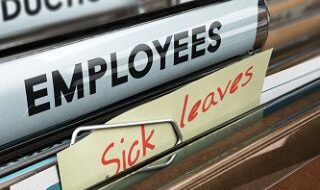October 16, 2025
For business with 20+ employees, employees get 25 hours of unpaid leave
As part of the larger state budget agreement made in June, lawmakers adopted a new parental leave mandate that applies to businesses with 20 or more employees and requires employers to provide 25 hours of unpaid leave for limited purposes.
NFIB New Hampshire opposed this mandate because it is inconsistent with the Granite State’s approach toward employment regulation. In comparison to our busybody New England neighbors, New Hampshire law is relatively deferential to employers and employees when it comes to setting the terms of employment.
Myriad employment regulations at the federal level make hiring and managing a workforce complicated enough without the addition of burdensome and vague state regulations.
Moreover, for employers with 20 to 50 employees, this type of workforce management, time tracking, and administrative liability is largely new.
Key Details
When does the mandate take effect? January 1, 2026.
Which employers are impacted? Employers with 20 more employees.
How much time off is required? Employees are permitted to take up to 25 hours off subject to certain limitations.
Is this leave paid or unpaid? An employer is not required to pay the employee for time off used under this law.
However, as noted by an employment attorney in NH Business Review, the state’s salaried employee pay law still requires employers to pay an employee’s “full salary for any pay period in which such employee performs any work without regard to the number of days or hours worked…”
No exception in that law appears to apply to the new time off mandate, meaning employers should be cautious and seek additional legal guidance before deducting time off used under this section.
How can the time be used? The employee can use this leave for:
– the employee’s own medical appointments for childbirth or postpartum care
– the employee’s child’s pediatric medical appointments within the first year of the child’s birth or adoption
If both parents work for the same employer, they are only permitted to take a combined 25 hours of leave through the child’s first year (not 50 hours).
Can the employee substitute paid time off? Employees must be allowed to substitute paid vacation or other “appropriate” paid leave for any leave taken pursuant to this law.
Is the leave job protected? Yes, the employee’s original job must be made available to them upon returning from leave.
When contemplating adjustments to the job of an employee who uses leave under this section, employers should be mindful of existing federal employment protections for expectant or new parents.
Is advanced notice required before using this leave? Yes, the law requires employees to provide “reasonable notice” prior to taking leave. An employee is also required to schedule the leave so as not to unduly disrupt the operations of the employer.
The law does not define reasonable notice or unduly disrupt, but these terms mirror language used in the federal Family and Medical Leave Act (FMLA). For more information on how those terms are understood in the FMLA context, view this U.S. Department of Labor Fact Sheet.
Can I ask for documentation to prove the leave is being used appropriately? Yes, an employer can request documentation to ensure the time is used for its intended purpose.
What should I do to make sure I’m in compliance? Employers should update their handbooks to reflect the new time off mandate and ensure policies for employees requesting or documenting leave are consistent with the requirements of the new law.
Read the full text of the new law here: Section 275:37-f.
For more information or questions about the new law, you can contact the New Hampshire Department of Labor or reach out to NFIB NH State Director John Reynolds at john.reynolds@nfib.org or 603-932-7757.
NFIB is a member-driven organization advocating on behalf of small and independent businesses nationwide.
Related Articles














